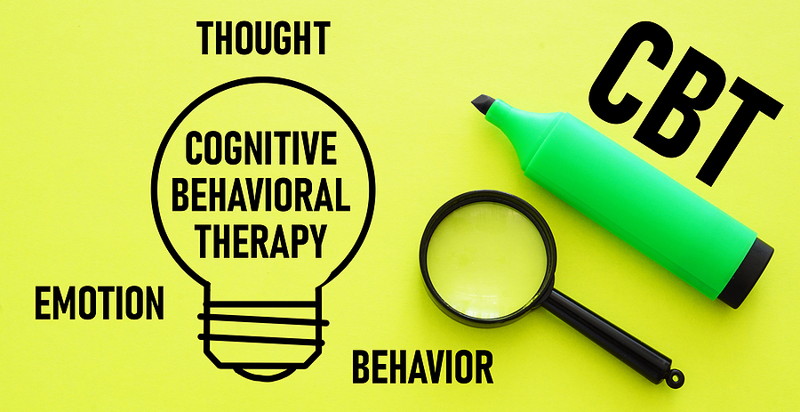 To most people, being able to place a bet or two is a common occurrence that they don’t need to think twice about. Whether they’re betting small sums of money or tens of thousands of pounds, they are in complete control of their betting and don’t worry about whether it is getting out of control.
To most people, being able to place a bet or two is a common occurrence that they don’t need to think twice about. Whether they’re betting small sums of money or tens of thousands of pounds, they are in complete control of their betting and don’t worry about whether it is getting out of control.
Such people only bet what they can afford to lose and are able to walk away whenever they want to. Unfortunately, not everyone is in the same boat and a small minority of people actually find that they have a serious problem when it comes to controlling their betting habits.
The good news for such people is that help is out there. Gambling addiction is a serious psychological disorder that can have devastating consequences for individuals and their loved ones. This is why psychologists and counsellors are well-equipped to address and treat gambling addiction using a variety of therapeutic approaches.
By understanding the underlying causes of gambling addiction and tailoring treatment to meet the individual’s needs, professionals in the field can help individuals on their path to recovery, thanks to methods such as CBT and meditation.
What Is Cognitive Behavioural Therapy?

One of the primary methods used by psychologists and counsellors to treat gambling addiction is Cognitive Behavioural Therapy, or CBT for short. CBT aims to identify and modify unhealthy thought patterns and behaviours associated with gambling.
Through CBT, individuals learn to challenge and replace irrational beliefs about gambling with more realistic and healthier perspectives. They also develop strategies to cope with triggers and cravings, such as engaging in alternative activities or practicing relaxation techniques like meditation or mindfulness.
CBT is a widely used and effective therapeutic approach that focuses on the connection between thoughts, emotions and behaviours. It aims to help improve one’s emotional well-being and overall functioning. The central premise of CBT is that our thoughts, or cognition, influence how we feel and how we behave.
In other words, the way we think about ourselves, others and the world around us can greatly impact our emotions and the way we act in various situations. This can be important for people with gambling problems, who need to ensure they don’t spiral thanks to the wrong thought patterns.
Why CBT Helps Problem Gamblers
 The obvious question that one might ask is how, exactly, CBT helps people that have gambling problems. The answer is a complex one, not least of all because there is usually not just one ‘issue’ when someone has a problem with gambling.
The obvious question that one might ask is how, exactly, CBT helps people that have gambling problems. The answer is a complex one, not least of all because there is usually not just one ‘issue’ when someone has a problem with gambling.
Cognitive Behavioural Therapy can be highly beneficial in treating gambling addiction by targeting the cognitive and behavioural aspects associated with the problem. This can involve the likes of identifying and challenging irrational beliefs, understanding triggers and cravings and developing healthier thought patterns. Even mathematical models can be used as part of developing programs to help people.
CBT also provides users with the skills necessary for managing emotions and stress, which is important because gambling addiction is often fuelled by a variety of underlying emotional issues or difficulties in managing the stresses that people suffer as a natural part of life.
CBT also emphasises the importance of developing a relapse prevention plan to maintain long-term recovery. Individuals work with their therapist to identify high-risk situations, such as being in a casino or encountering financial stress, and develop strategies to cope with these situations without resorting to gambling.
Other Ways Therapists & Counsellors Help
 In addition to CBT, therapists may also utilise a wealth of other therapeutic modalities, such as motivational interviewing and family therapy.
In addition to CBT, therapists may also utilise a wealth of other therapeutic modalities, such as motivational interviewing and family therapy.
Motivational interviewing helps individuals explore and resolve their ambivalence about changing their gambling behaviours. It focuses on enhancing motivation and commitment to change by exploring the individual’s personal values and goals, putting these are the forefront of what’s important. Family therapy, meanwhile, involves family members in the treatment process to improve communication, support and understanding.
Another important aspect of gambling addiction treatment is addressing underlying psychological issues or co-occurring disorders. Many individuals with gambling addiction may also struggle with depression, anxiety or substance abuse problems.
Psychologists and counsellors assess and treat these co-occurring disorders alongside the gambling addiction to provide comprehensive and integrated care. This may involve individual therapy, group therapy or medication management, depending on the specific needs of the individual, judging each case on its merits.
Support groups, such as Gamblers Anonymous, can also play a crucial role in the treatment of gambling addiction and may be recommended by the person that you’re dealing with. These groups provide a safe and supportive environment for individuals to share their experiences, gain insights from others and receive ongoing encouragement and accountability.
Psychologists and counsellors may encourage their clients to participate in support groups as an adjunct to individual therapy, rather than as a replacement for them, if they feel the person will benefit from it.
Relapse Prevention Plans
 As mentioned, relapse prevention strategies can help individuals maintain their progress and prevent future gambling episodes. These strategies include identifying high-risk situations and learning effective coping mechanisms. By preparing individuals for potential challenges and giving them the tools to navigate those challenges, therapists empower clients to stay on track with their recovery.
As mentioned, relapse prevention strategies can help individuals maintain their progress and prevent future gambling episodes. These strategies include identifying high-risk situations and learning effective coping mechanisms. By preparing individuals for potential challenges and giving them the tools to navigate those challenges, therapists empower clients to stay on track with their recovery.
It is important to note that treatment for gambling addiction is not a one-size-fits-all approach. Psychologists and counsellors recognise the uniqueness of each individual and tailor their treatment plans accordingly.
They consider factors such as the severity of the addiction, the presence of co-occurring disorders, and the individual’s support system when determining the most appropriate treatment approach. If someone feels like they will benefit from a relapse prevention plan then one will be put in place to help them achieve this.
It doesn’t mean that they will never relapse, but that they are in a position to at least try to use the methods that they have learned in order to avoid this from happening to them, regardless of the situation that they find themselves in.
There Are No Easy Answers
 Psychologists and counsellors play a vital role in the treatment of gambling addiction. Through the various therapeutic modalities that we’ve outlined, including Cognitive Behavioural Therapy, motivational interviewing and family therapy, professionals address the underlying causes of gambling addiction and help individuals develop healthier thought patterns and behaviours where possible.
Psychologists and counsellors play a vital role in the treatment of gambling addiction. Through the various therapeutic modalities that we’ve outlined, including Cognitive Behavioural Therapy, motivational interviewing and family therapy, professionals address the underlying causes of gambling addiction and help individuals develop healthier thought patterns and behaviours where possible.
By incorporating support groups and relapse prevention strategies, therapists provide comprehensive and individualised care to support long-term recovery.
The problem is, there are no easy answers when it comes to coping with gambling addiction. As with other addictions, such as food and alcohol, it is a lifelong commitment that will face many obstacles over the years.
It is crucial to acknowledge that it isn’t going to be easy, but if you or someone you know is struggling with gambling addiction, seeking professional help from a qualified psychologist or counsellor can be an important step towards healing and regaining control of your life. It is a journey, but all journeys begin with the first step.
